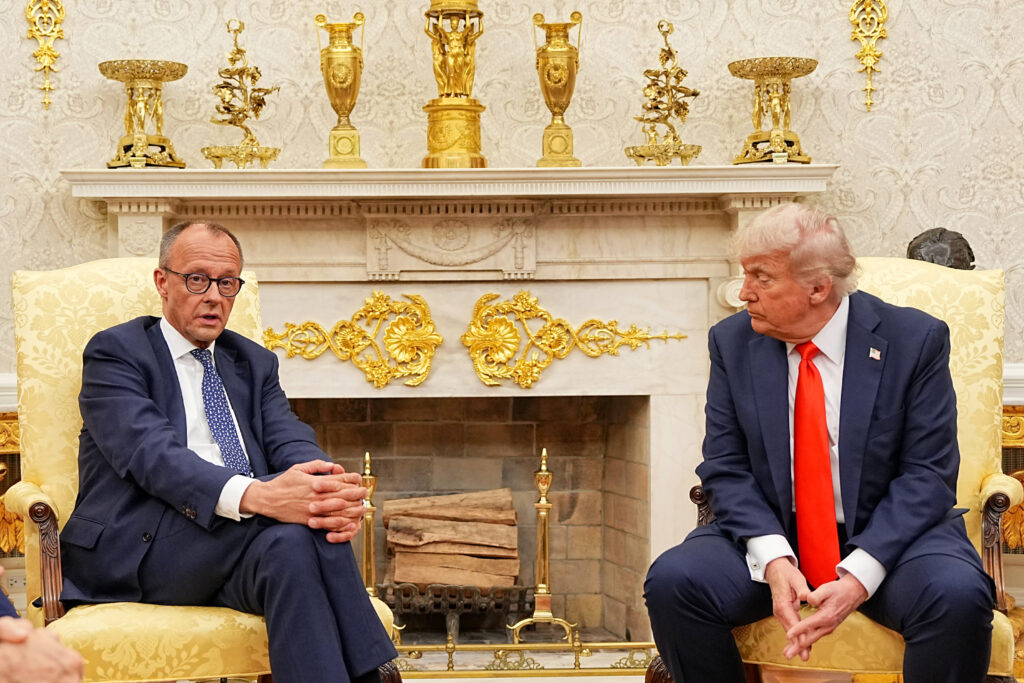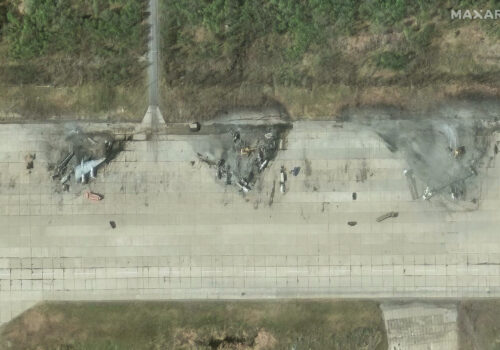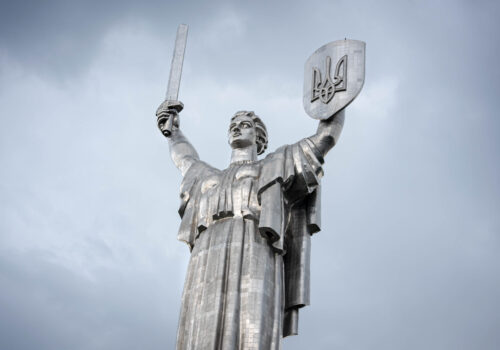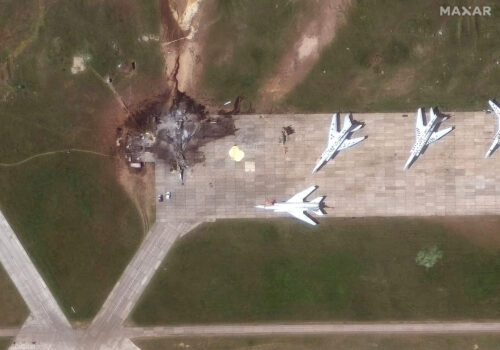Set aside for the moment the mud wrestling between the world’s most powerful and richest men, Donald Trump and Elon Musk. This weekend, let’s focus on an insufficiently noticed exchange that goes more to the heart of the United States’ enduring and endangered purpose.
On the eve of the eighty-first anniversary of D-Day, the Allied invasion at Normandy that marked the beginning of Europe’s liberation from Adolf Hitler, newly elected German Chancellor Friedrich Merz brought a message to the White House that no American should ignore.
Merz made reference to the anniversary, in the context of Russia’s ongoing war in Ukraine, as marking a day “when the Americans once ended a war in Europe.”
Caught off-guard, the US president quipped that D-Day wasn’t a pleasant day for Germany.
“Well, in the long run, Mr. President,” Merz replied calmly, “this was the liberation of my country from Nazi dictatorship.”
Trump paused to digest what he’d just heard, a good German thanking Americans for defeating a criminal one, then he answered, “That’s true. That’s true.”
What came next was the most significant message US allies could send to the Trump administration as another criminal regime tests allied resolve.
“And we know what we owe you,” Merz went on. “But this is the reason why I’m saying that America is, again, in a very strong position to do something on this war and ending this war.” Merz asked Trump to talk about what they could do jointly “for more pressure on Russia,” placing the war’s blame unambiguously where it belongs.
It’s worth calling out that Merz-Trump exchange, which came in the twenty-seventh minute of their Oval Office session with reporters, after Trump comments on his travel ban, prospects for a China trade deal, his relationship with his erstwhile adviser Musk, and the presidential protocol of when to use an autopen signature.
Given the Ukraine war’s gravity and Merz’s reference to World War II, Trump’s comments that followed must have been disconcerting to Merz. The German chancellor was well enough rehearsed not to show it. When asked by a reporter when he would impose more sanctions on Russia, Trump talked about his over two-hour conversation with Putin, during which he compared the war to “two young children fighting like crazy . . . Sometimes you’re better off letting them fight for a while and then pulling them apart.”
With nearly a million and a half casualties already in this schoolyard brawl, a reporter asked Merz whether he agreed with the analogy.
Merz was at his best. He said both Germany and the United States agree on how terrible war is, and both are looking for ways to stop it soon. “And I told the president before we came in,” said Merz, “that he is the key person in the world who can really do that now by putting pressure on Russia.”
As Merz spoke of the children Russia has kidnapped from Ukraine, Trump described disturbing satellite pictures of the war—“bodies, arms, heads, legs all over the place. You’ve never seen anything like it. It’s so ridiculous.” Merz then added, “And this is only by Russian weapons against Ukraine. This had never happened with [Ukrainian] weapons against Russia, never . . . So, this is the difference, and that’s the reason why we are trying to do more on Russia.”
In the past two weeks, Trump has appeared to be losing patience with Putin, suggesting that he knows Putin is playing him for time and wondering whether Putin’s relentless attacks on civilians demonstrate that the Russian president has “gone absolutely CRAZY.” Beyond that, Trump has been quoted as calling Ukraine’s drone attacks last weekend on Russian strategic bombers “badass.”
All that history will remember, however, is whether Trump was the US president who contributed to Putin’s defeat and brought Ukraine a lasting peace—or whether he stood by as Putin escalates further, targeting civilians and their infrastructure. In all the news noise of a typical Trump administration week, it is worth listening closer to the German chancellor’s D-Day appeal that it will take much more US pressure on Russia to end this European war.
Frederick Kempe is president and chief executive officer of the Atlantic Council. You can follow him on X: @FredKempe.
This edition is part of Frederick Kempe’s Inflection Points newsletter, a column of dispatches from a world in transition. To receive this newsletter throughout the week, sign up here.
Further reading
Thu, Jun 5, 2025
Ukraine just gave us a glimpse into the future of European defense
Inflection Points By Frederick Kempe
European allies need both military capabilities and technological innovation to deter Russia, as Ukraine’s recent drone strikes on Russian air bases underscore.
Fri, Jun 6, 2025
Dispatch from Kyiv: Ukraine is putting new pressure on Russia. Will Trump follow?
New Atlanticist By John E. Herbst
To bring a stable peace to Europe, the Trump administration must apply strong pressure on Russia in the form of sanctions and military aid to Ukraine.
Fri, Jun 6, 2025
Ukraine’s drone strikes offer four big lessons for US nuclear strategists
New Atlanticist By Mark J. Massa
Ukraine’s Operation Spiderweb should spur the US government to address strategic vulnerabilities that nuclear strategists have focused on for years.
Image: US President Donald Trump (r) receives German Chancellor Friedrich Merz (CDU) in the Oval Office at the White House. It is the first meeting between the two politicians since Trump and Merz took office.



